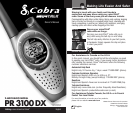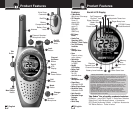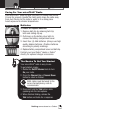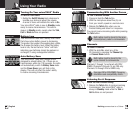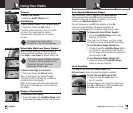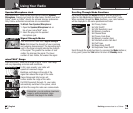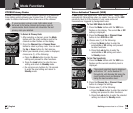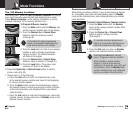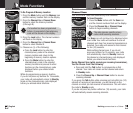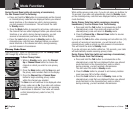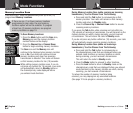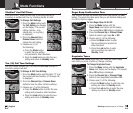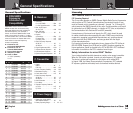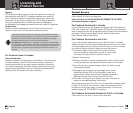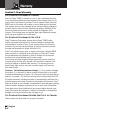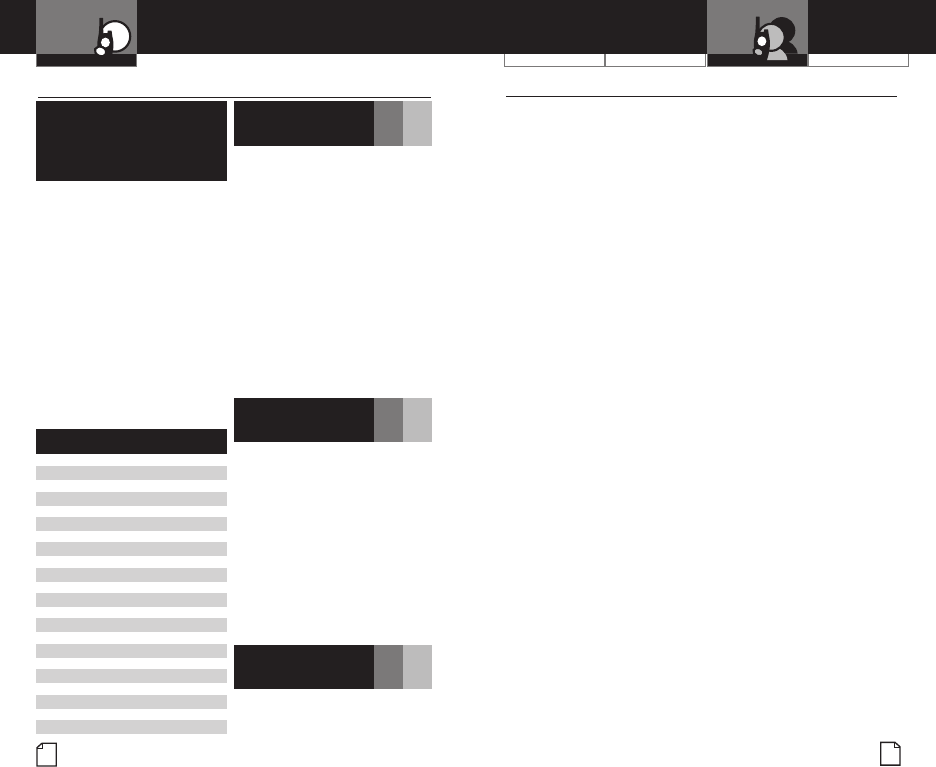
Operation WarrantyIntroduction
21
Nothing comes close to a Cobra
®
Customer Assistance
20
English
General Specifications
21
Nothing
comes close to a Cobra
®
General Specifications
•
Nominal
Unit
Nominal
Unit
C.Transmitter
1. Power
GMRS . . . . . . . . . . . . . . . . . . . .W 2
FRS Only . . . . . . . . . . . . . . . . .mW 500
2. Carrier Frequency Stability . . . ±Hz 500
3. Modulation Limiting . . . . . . . . kHz 2.5
4. Carrier Attack Time . . . . . . . . . mS 80
5. Audio Frequency Response
@ 300 Hz . . . . . . . . . . . . . . . . . dB -12
@ 2500 Hz . . . . . . . . . . . . . . . . dB +6
6. Audio Distortion
. . . . . . . . . . . .
%
3
7. Hum Noise . . . . . . . . . . . . . . . . dB 30
8.
T
ransient Frequency Behavior
a) TX On
. . . . . . . . . . . . . . . . .
mS
30
b) TX Off . . . . . . . . . . . . . . . . . mS 5
A. FRS/GMRS
Frequency
Allocation and
Compatibility
Important: Please note that Cobra
®
GMRS models with 15 Channels may
designate different channel numbers for
the same frequency.For example, a
Cobra
®
15 Channel GMRS model would
need to be tuned to Channel 11 in order
to comm
unicate with a 22 Channel GMRS
tuned to Channel 15.Please refer to the
chart below for channel/ frequency
number compatibility.
A = Channel No.For
22 Channel GMRS Models
B = Channel No.For 15
Channel GMRS Models
C = Type of Radio Service
D = Frequency in MHz
E = Power in Watts
a = 2.0/0.5 (selectable)
b = 0.5
ABC D E
1 1 FRS/GMRS 462.5625 a
2 2 FRS/GMRS 462.5875 a
3 3 FRS/GMRS 462.6125 a
4 4 FRS/GMRS 462.6375 a
5 5 FRS/GMRS 462.6625 a
6 6 FRS/GMRS 462.6875 a
7 7 FRS/GMRS 462.7125 a
8 FRS 467.5625 b
9 FRS 467.5875 b
10 FRS 467.6125 b
11 FRS 467.6375 b
12 FRS 467.6625 b
13 FRS 467.6875 b
14 FRS 467.7125 b
15 11 GMRS 462.5500 a
16 8 GMRS 462.5750 a
17 12 GMRS 462.6000 a
18 9 GMRS 462.6250 a
19 13 GMRS 462.6500 a
20 10 GMRS 462.6750 a
21 14 GMRS 462.7000 a
22 15 GMRS 462.7250 a
B. Receiver
1. Sensitivity
For 12 dB SINAD . . . . . . . . . . dBm -121
For Call Signal Detection . . . . dBm -121
2. Max. Audio Output
@ 10% THD . . . . . . . . . . . . . . mW 200
3. Max. S/N Ratio
@ 1mV RF Input . . . . . . . . . . . dB 50
4. Squelch
a) Sensitivity . . . . . . . . . . . . . . dBm -121
b) Attack Time . . . . . . . . . . . . . mS 150
c) Closing Time . . . . . . . . . . . . mS 200
5. Audio Frequency Response
@ 300 Hz . . . . . . . . . . . . . . . . . dB -3
@ 2500 Hz . . . . . . . . . . . . . . . . dB -10
6. Signal Displacement BW . . . . +/-kHz 5
7. Adjacent Channel Rejection . . . dB 60
8. Intermodulation Rejection . . . . dB 65
9. Spurious Response Rejection . . dB 55
D. Power Supply
1. Battery Life (5:5:90 RATIO)
With Alkaline Batteries . . . . . . . HR 24
2. Battery Operating Range . . . . . . V 4.2 - 6.0
Nominal
Unit
Operation
Licensing
•
For Products Used in the U.S.A.
FCC Licensing Required
This 2-way radio operates on GMRS (General Mobile Radio Service) frequencies
which require an FCC (Federal Communications Commission) license. A user
must be licensed prior to operating on channels 1 through 7 or 15 through 22,
which comprise the GMRS channels of this radio. Serious penalties could result
for unlicensed use of GMRS channels, in violation of FCC rules, as stipulated in
the Communication Act’s Sections 501 and 502 (amended).
Licensed users will be issued a call sign by the FCC, which should be used
for station identification when operating this radio. GMRS users should also
cooperate by engaging in permissible transmissions only, avoiding channel
interference with other GMRS users, and being prudent with the length
of their transmission time.
For licensing information and application forms, please call the FCC Hotline at
800-418-FORM. Request form #159 and form #605. Questions regarding the
license application should be directed to the FCC at 888-CALL-FCC. Additional
information is available on the FCC’s website at www.fcc.gov.
Safety Information for microTALK
®
Radios
Your wireless handheld portable transceiver contains a low power transmitter.
When the Talk button is pushed, it sends out radio frequency (RF) signals.
The device is authorized to operate at a duty factor not to exceed 50%.
In August 1996, the Federal Communications Commissions (FCC) adopted
RF exposure guidelines with safety levels for handheld wireless devices.



